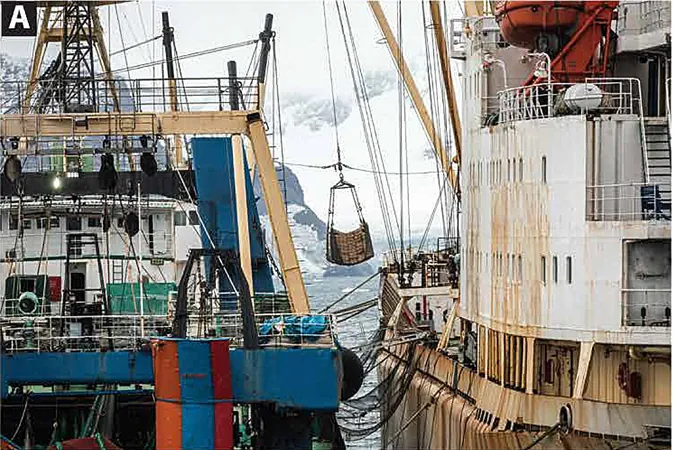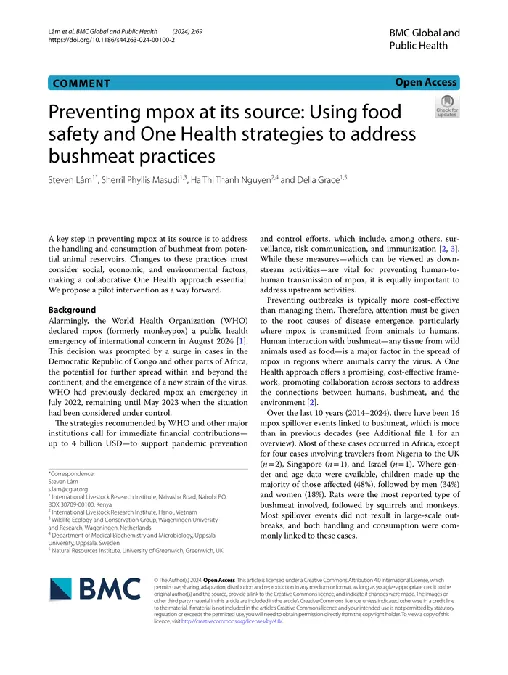
Breakthrough Study Unveils Major Players in Seafood Transshipment, Promises Enhanced Transparency!
2024-10-11
Author: Li
Breakthrough Study Unveils Major Players in Seafood Transshipment, Promises Enhanced Transparency!
In a groundbreaking revelation for the seafood industry, a new study has uncovered critical insights into global transshipment activities, shedding light on a previously murky aspect of seafood traceability. The study, published in Science Advances, identifies the owners of all refrigerated cargo vessels, known as "reefers," which serve as mobile ports for fishing fleets across the globe. This research marks a significant milestone in efforts to enhance transparency within the seafood supply chain.
The study reveals that just 324 owners are responsible for the vast majority of fish transshipment worldwide, with China, Russia, and Greece playing pivotal roles. According to lead author Frida Bengtsson from the Stockholm Resilience Center, this discovery represents a "major step for more transparency" in the industry.
Reefers are crucial to the global seafood market; they facilitate the transshipment of around one-third of the annual global tuna catch, which is valued at a staggering $10.4 billion. However, the practice of transshipment—where fish, fuel, and other supplies are exchanged between vessels—has been criticized for its inherent lack of transparency, often linked to illegal fishing activities and the obfuscation of seafood origins.
Thanks to advancements in satellite technology, researchers and the public can now monitor the operations of individual vessels. However, until now, a significant gap remained in understanding who owned these crucial reefer vessels involved in the transshipment process.
Bengtsson emphasizes that knowing the "beneficial owner" of these vessels provides an essential leverage point for improving governance and oversight within the industry. The collaborative study from the Stockholm Resilience Center, Stanford Center for Ocean Solutions, and the University of British Columbia has cataloged an impressive 569 reefers currently in operation along with their 324 owners.
Surprisingly, just 10 of these owners constitute nearly 25% of all global transshipment events. This small group presents a unique opportunity for targeted intervention. "If we can engage these key players to enhance their operational practices, we could rapidly improve the traceability and sustainability of seafood products," Bengtsson notes.
Furthermore, the researchers have compiled data on the geographic areas where these reefer owners operate, including details on the fishing gear used by the vessels they interact with and the flags they sail under. This wealth of information is now easily accessible through an online visualization tool, paving the way for NGOs, insurance companies, and financial institutions to drive stronger incentives for sustainable practices in the fishing industry.
As the battle against illegal fishing and unsustainable practices continues, this new research arms activists and stakeholders with the knowledge needed to champion accountability and enhance the integrity of the seafood value chain. Keep your eye on the waves—this new transparency might just change the future of seafood for good!




 Brasil (PT)
Brasil (PT)
 Canada (EN)
Canada (EN)
 Chile (ES)
Chile (ES)
 España (ES)
España (ES)
 France (FR)
France (FR)
 Hong Kong (EN)
Hong Kong (EN)
 Italia (IT)
Italia (IT)
 日本 (JA)
日本 (JA)
 Magyarország (HU)
Magyarország (HU)
 Norge (NO)
Norge (NO)
 Polska (PL)
Polska (PL)
 Schweiz (DE)
Schweiz (DE)
 Singapore (EN)
Singapore (EN)
 Sverige (SV)
Sverige (SV)
 Suomi (FI)
Suomi (FI)
 Türkiye (TR)
Türkiye (TR)